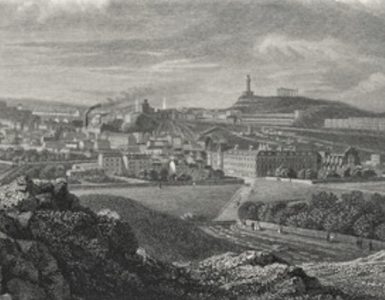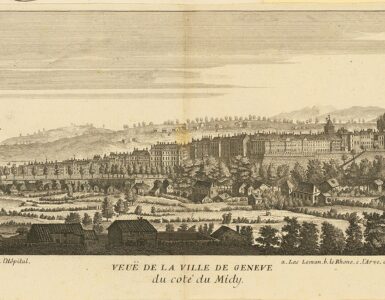 October 31, 2017 marks the quincentennial of the event considered the beginning of the Reformation. Even though some historians contend that it was not Luther that posted the theses but rather one of his students while others say they were not posted at all, it is clear the theses were composed by Luther and then reproduced in Latin and other languages for distribution. Regardless of the precise details as to how the theses became public they represent the spark that ignited the purifying fire of reform. The lovely high-resolution copy of the theses pictured dates to 1517 and is held by the Berlin State Library Prussian Cultural Heritage Foundation.
October 31, 2017 marks the quincentennial of the event considered the beginning of the Reformation. Even though some historians contend that it was not Luther that posted the theses but rather one of his students while others say they were not posted at all, it is clear the theses were composed by Luther and then reproduced in Latin and other languages for distribution. Regardless of the precise details as to how the theses became public they represent the spark that ignited the purifying fire of reform. The lovely high-resolution copy of the theses pictured dates to 1517 and is held by the Berlin State Library Prussian Cultural Heritage Foundation.
The key theological points of debate often associated with the Reformation are the five solas including the foundational sola regarding Scripture, refutation of the use of images and other sensory elements as inspiration to worship God, justification by faith, clerical celibacy, and the Mass. As important as each of these issues was to reform, the aspect of Catholicism that dominates Luther’s contentions in the theses is something called an indulgence. The use of indulgences and development of the doctrine of purgatory grew out of Medieval theology. An indulgence was a letter obtained from the papacy that reduced the amount of time one spent in purgatory in preparation for heaven. A priest could absolve a parishioner of the guilt of sin, but a price of punishment needed to be paid in purgatory. At the time, indulgences were sold and could be purchased for both the living and the dead, which was a practice that particularly incensed Luther and seeded his thought regarding his theses. At this point in time Martin Luther was working to reform Catholicism, not create a new church. His call to debate the theses, mentioned at the beginning of the document, was intended to bring his observations to light and hopefully bring about change in the status quo as Scripture was brought to bear on existing practices.
The Theses require some patience because their style and method are so different from contemporary writing. They may appear at first to be a shot-gun blast of random thoughts, but there is a flow and development in Luther’s presentation. Debate and polemics (war with words, argument) was a way of life for the academics of the day and Luther was thoroughly educated to develop his presentation. He begins his case slowly and generally, making sure not to point the finger of blame at the pope. Luther puts the responsibility for indulgence abuses on the greed of lesser clerics and agents who managed to hide their evils from the pope. But by the time Luther gets to the end of his arguments he is more precise regarding what needed to be done by the church to bring change to the existing errant practices related to indulgences.
The copy of the theses available for download has been compiled from other English sources which are cited at the end of the text of the theses. The last page of the PDF has notes which have been referenced from some of the theses. The notes offer some definitions and comments that will help readers understand the theses and their context better.
Barry Waugh





